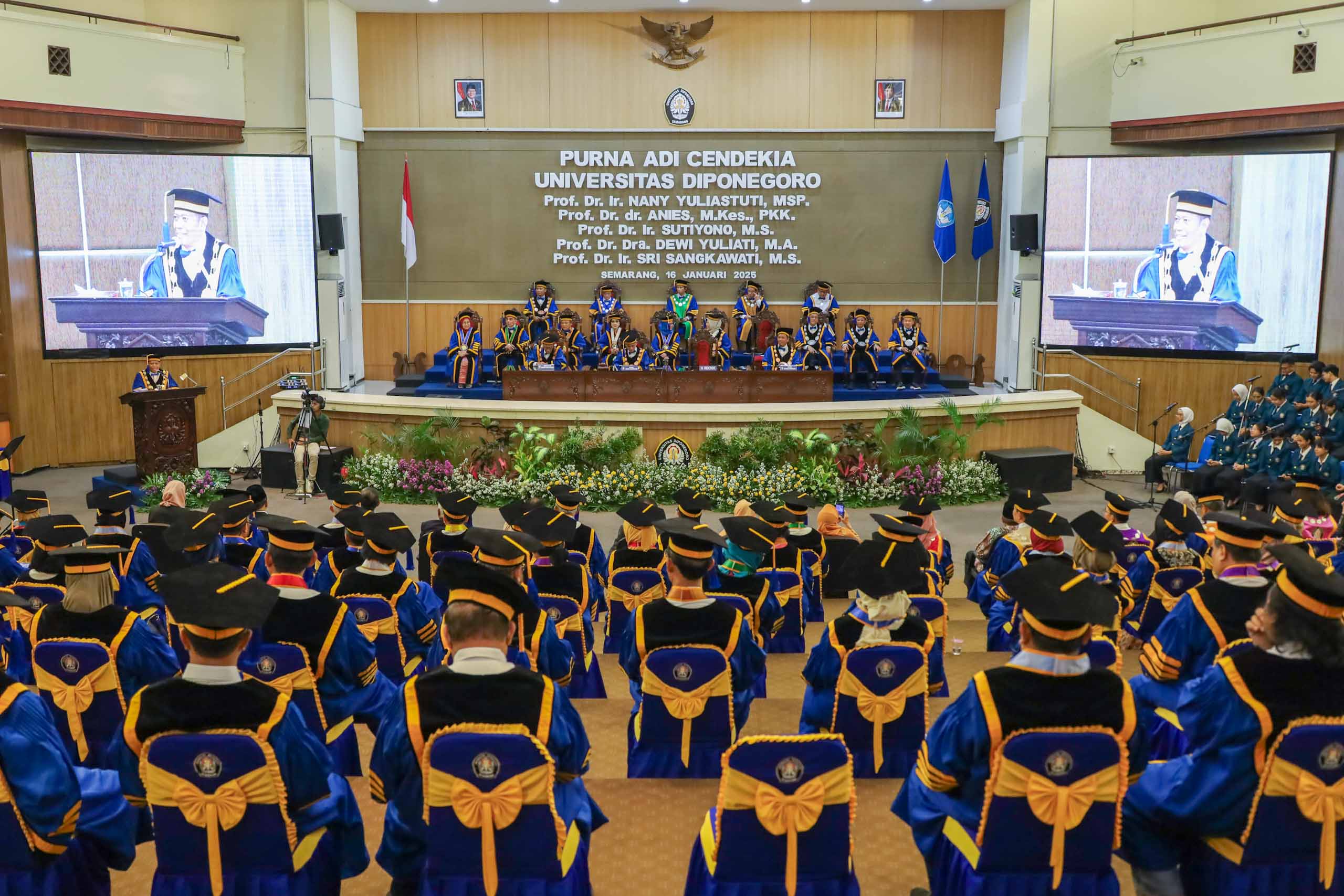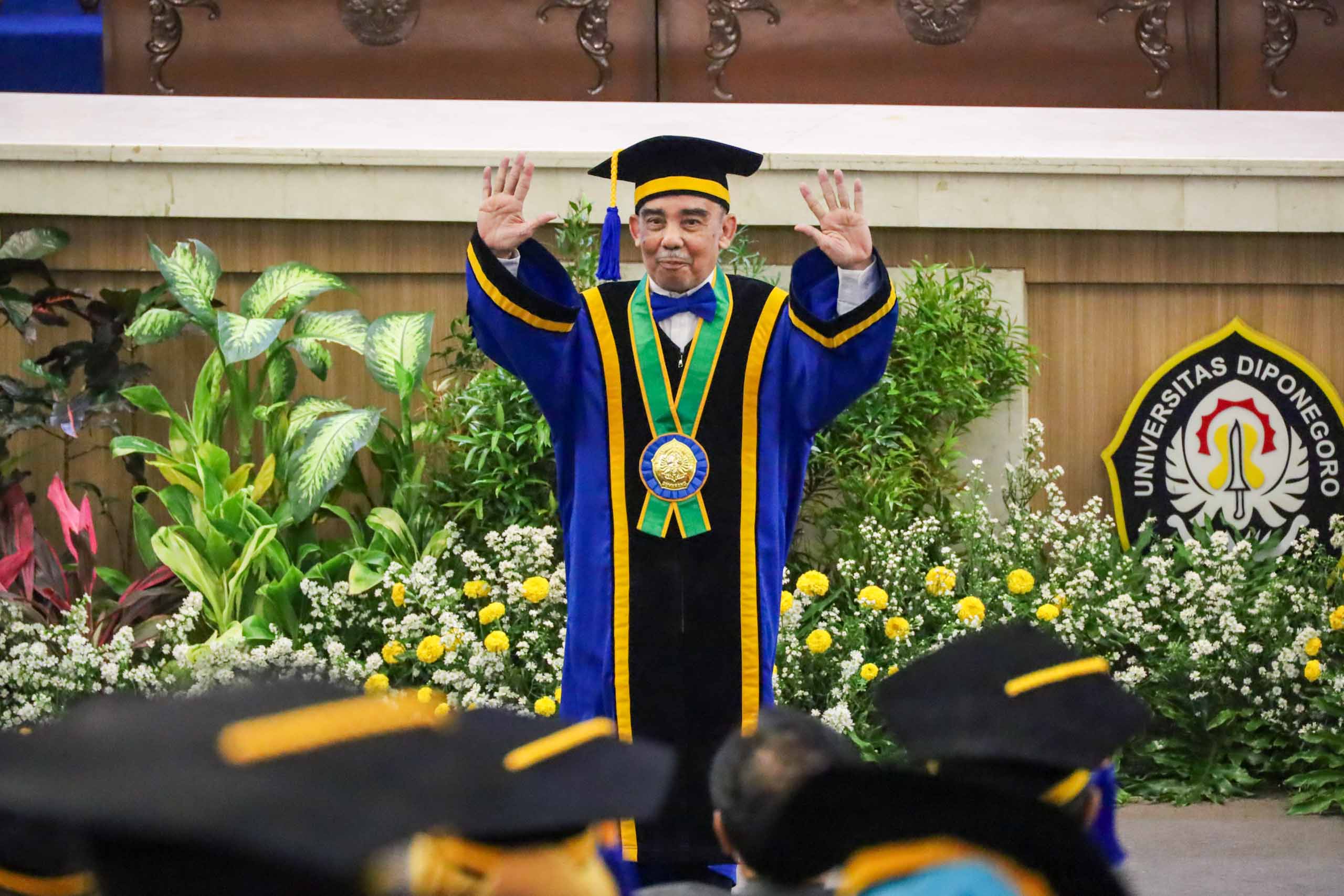At the Purna Adi Cendekia Ceremony (January 16, 2025), held by the Academic Senate of Universitas Diponegoro at the Prof. Sudarto Building, Prof. Dr. dr. Anies, M.Kes., PKK, a Professor at Universitas Diponegoro in the field of Public Health and Preventive Medicine, delivered a speech on the theme “Aspiring for Environmentally Conscious Doctors.” This session served as a tribute and recognition to five professors who have completed their tenure at Universitas Diponegoro.
In his speech, Prof. Anies emphasized the crucial role of doctors in addressing current environmental issues. He highlighted the need for doctors to be environmentally aware as part of their responsibility to incorporate ecological medicine into their expertise, which is inherently linked to human health. For instance, he noted that global warming, a pressing environmental issue, has been a contributing factor to the emergence of various diseases.
“Environmentally conscious doctors are simply a reflection of the medical profession’s responsibility to master environmental medicine. Environmental medicine applies medical science to the interaction between physical, chemical, and biological environments and human health. For example, the depletion of the ozone layer and global warming, which are now undeniable realities, have led to the proliferation of diseases caused by these environmental phenomena. Doctors must be vigilant against various health threats arising from the environment,” he stated.
Prof. Anies also expressed concern that while doctors are perceived as a primary source of information on all health-related matters, their knowledge of global issues remains inadequate. These issues are often complex and sensitive as they intersect with politics and non-medical concerns.
“There is still a widespread perception in society that doctors are the ultimate source of information on all health-related matters. Ironically, they lack sufficient knowledge on global issues, such as transboundary air pollution or the non-ionizing radiation from household and office equipment, which could have long-term health implications. Additionally, many environmental questions are challenging and sensitive, as they involve political and non-medical issues,” he explained.
To address these challenges, Prof. Anies suggested integrating environmental medicine into the medical school curriculum. He argued that the environment is a critical factor influencing public health.
“One of the solutions is to incorporate environmental medicine into the medical school curriculum to ensure doctors are not left behind in comparison to the rapid technological advances of the past two decades. The environment is a key determinant of public health,” said Prof. Anies.
In closing, Prof. Anies reminded the audience that it is never too late for medical schools to adopt this program to create future doctors who are environmentally conscious. He emphasized that such efforts could help mitigate and prevent environmental degradation.
“Although we may be behind, for medical schools that have yet to implement this, it is never too late. We truly aspire to have doctors who care about the environment and can contribute to solving increasingly complex environmental problems. Caring for the environment means taking action to prevent natural environmental damage and working to repair what has already been harmed. An environmentally conscious mindset reflects awareness and sensitivity to our surroundings. Therefore, it is time for doctors to care about the environment!” he concluded. (Marta; ed. DHW)













